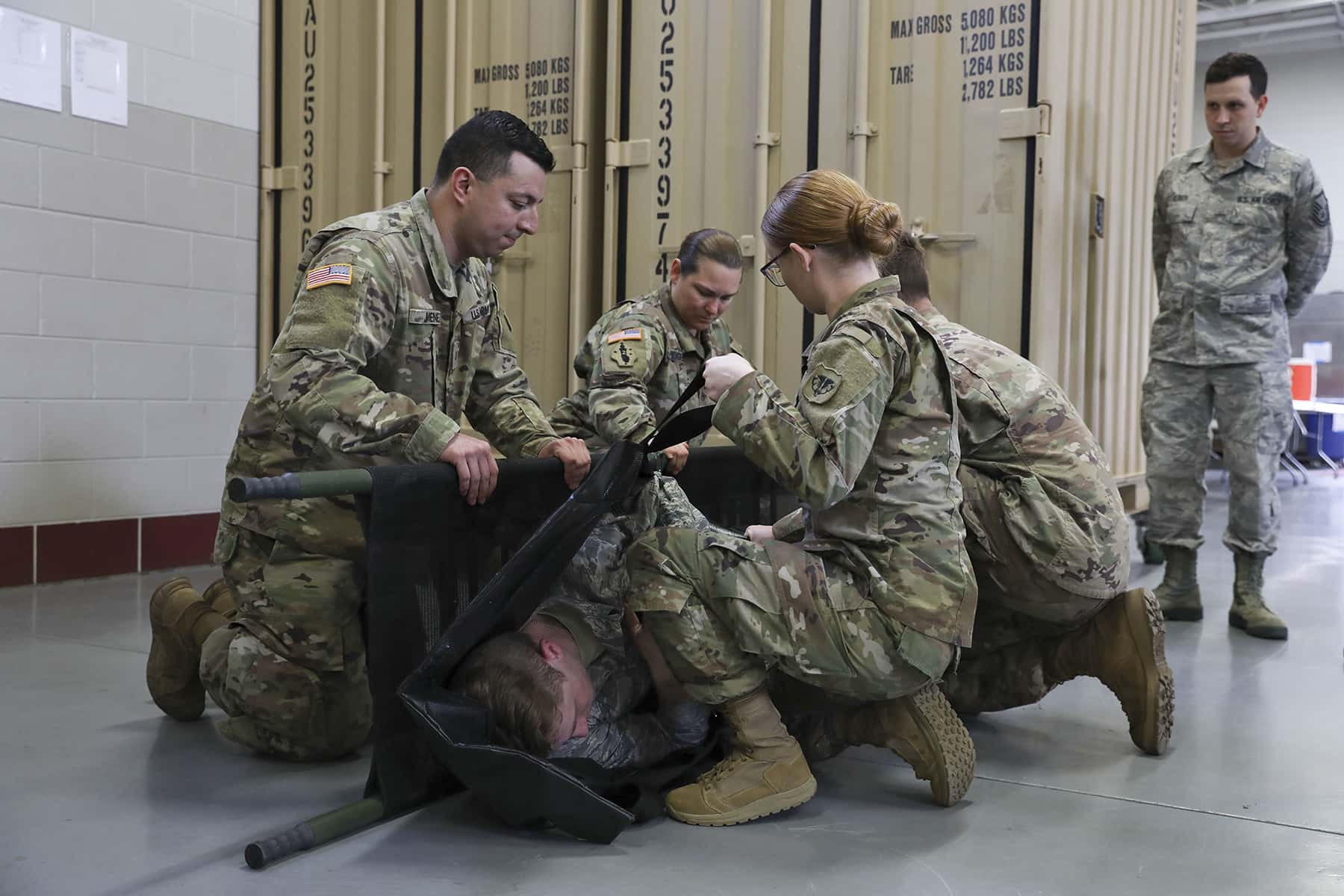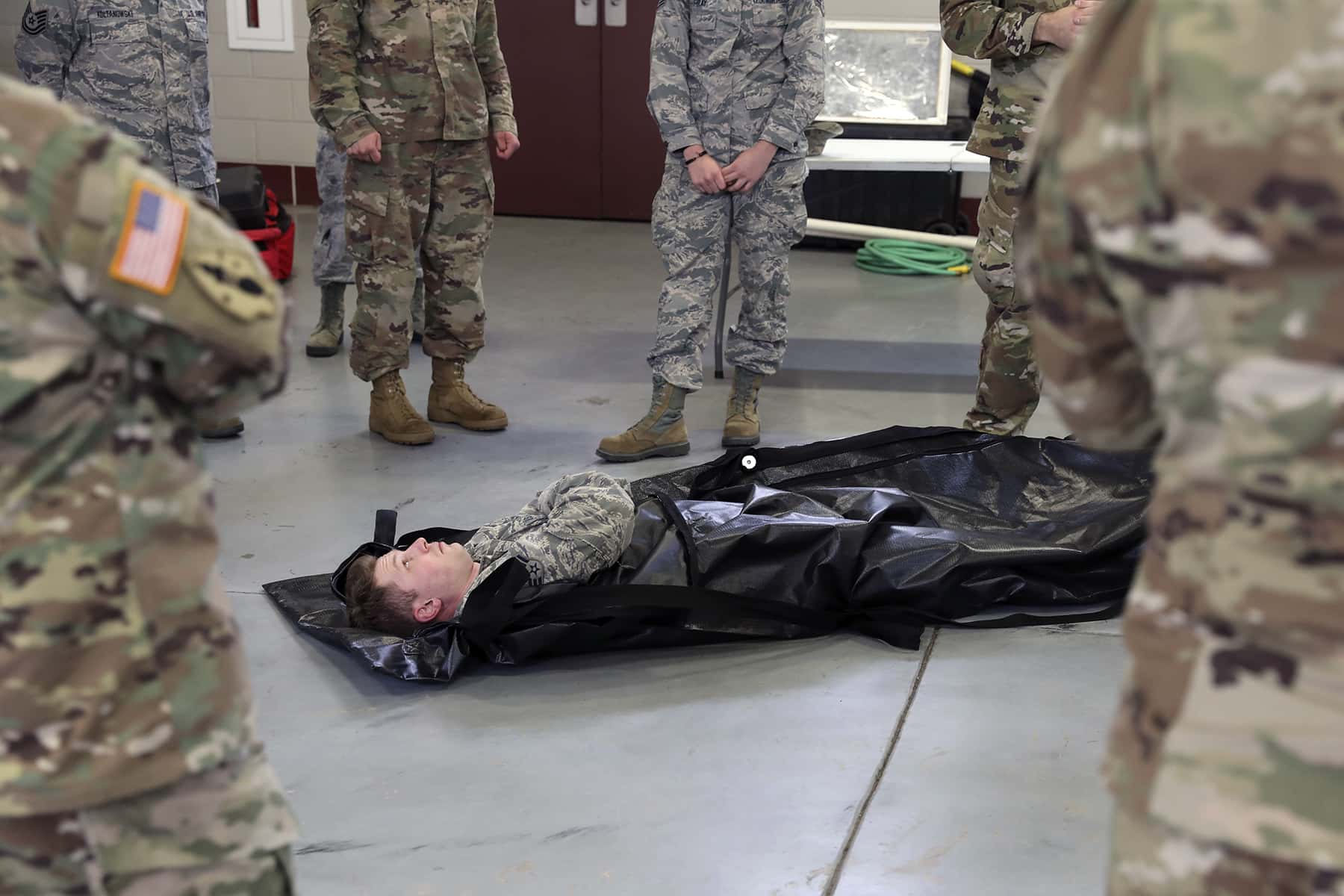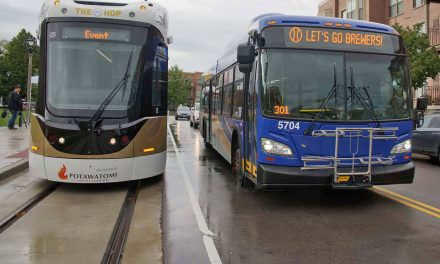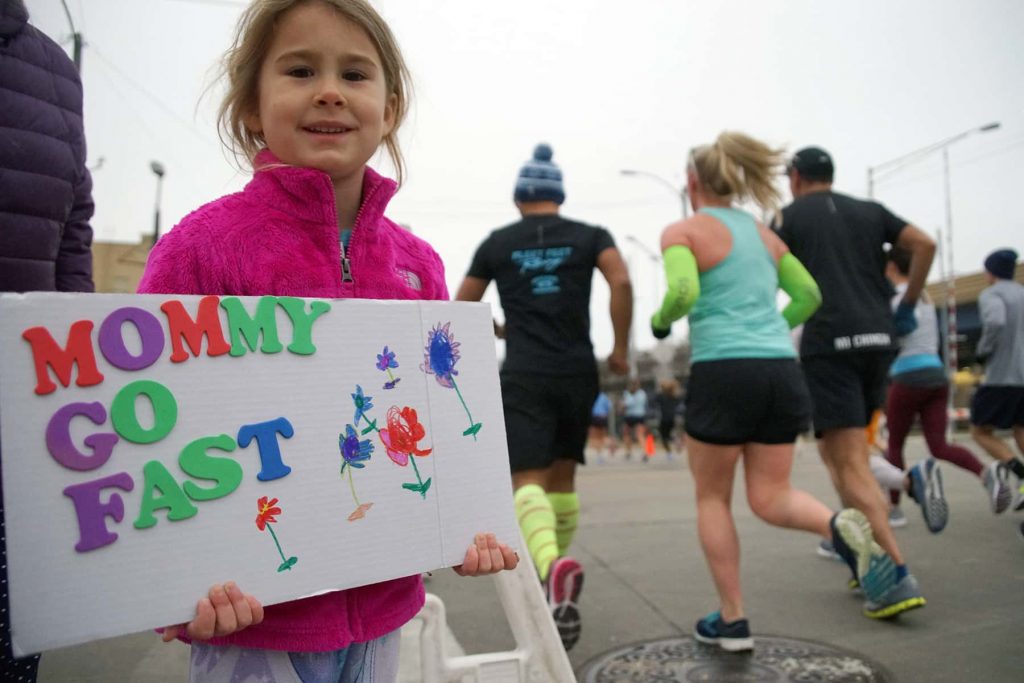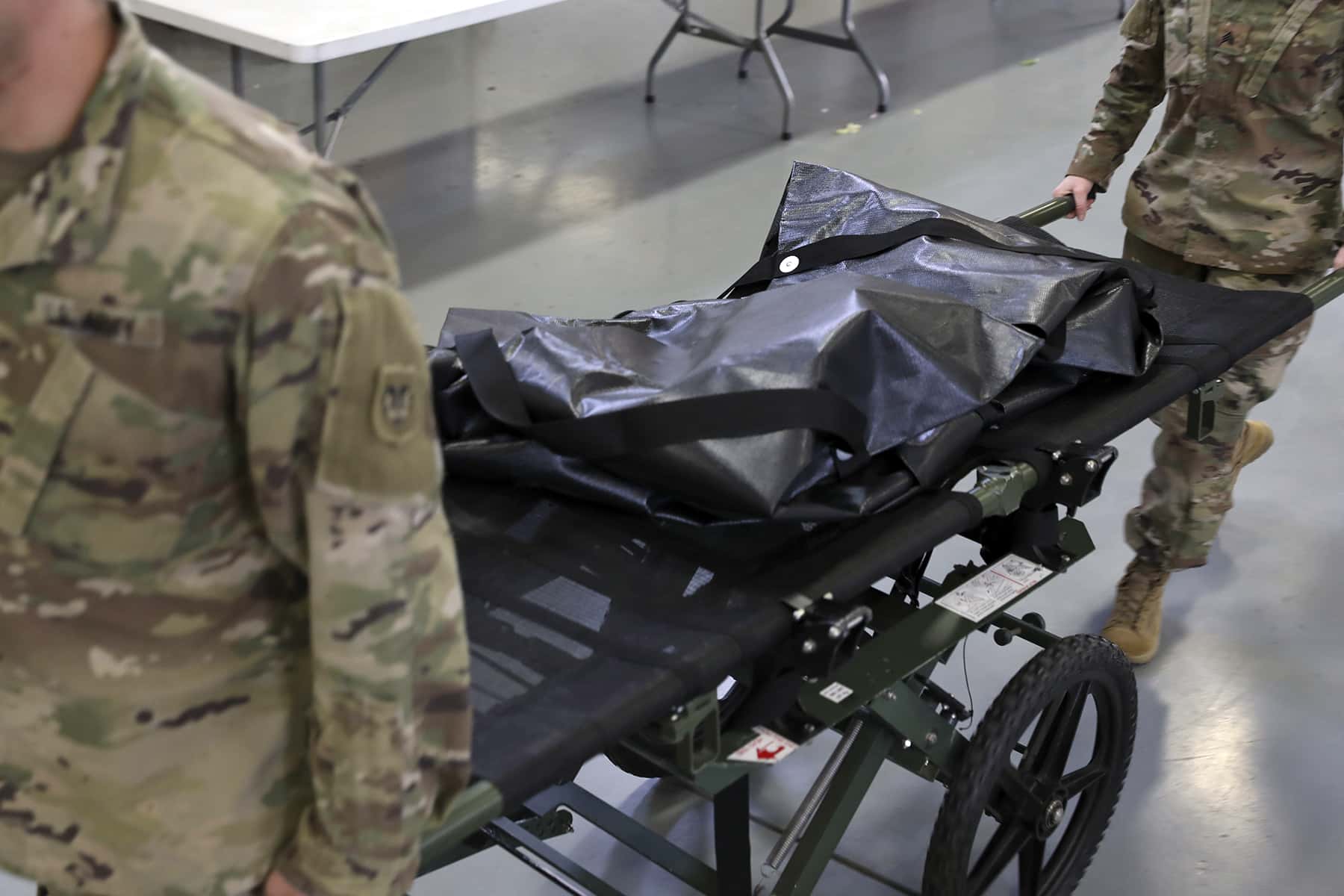
Members of the Wisconsin Air National Guard’s 115th Fighter Wing Fatality Search and Recovery Team (FSRT) mobilized in April to assist the state’s medical examiners with mortuary operations amidst the COVID-19 response.
The team’s primary task is to assist the medical examiner and coroner with the dignified removal and handling of decedents from their residence or on-scene, transportation, cleaning and decontamination.
As part of the planning process, Master Sgt. Steven Ulrich, an FSRT member, took time off from his civilian position as a human resources specialist at the Wisconsin Department of Veterans Affairs to coordinate with state departments and outline the capabilities of the National Guard and its FSRT to best assist the mortuary needs of the state.
“Every time you watch the death toll tragically rise from this disease that only tells a portion of our story,” Ulrich said. “A local coroner’s normal workload doesn’t stop just because there is a pandemic ravaging their community. There are still deaths of natural causes, and, sadly, many deaths of despair, which tax our country’s decedent management capacity.”
Tech. Sgt. Samuel Keizer, a full-time member at the 115th who also serves on FSRT as an additional duty, explained that many counties, especially in the northern part of the state, have little to no morgue space and could be overwhelmed by even a slight increase in deaths.
“The biggest piece of the FSRT mission is to provide closure to families and loved ones after each event and to provide additional storage to counties where we are able to preserve the decedents,” Keizer said. “Once the pandemic is over, we can get them back to their families. This mission provides a huge amount of humanity at an otherwise dangerous time.”
The team has provided more than 576 hours of assistance to the Dane County Medical Examiner’s office by providing the dignified removal of 47 decedents.
“We are trained in the proper removal and handling of remains,” said Tech. Sgt. Angela Krepline, also a member of the 115th. “Our team is vital in this response because we have the tools, knowledge and skills to assist Dane County when they are in need of an extra hand.”
Krepline, a full-time student pursuing a degree in nursing at Fox Valley Technical College in Appleton and working part-time as an occupational therapist at a rehabilitation facility, felt exhilarated about her future career in the healthcare field, but admits that the current mission has had unique challenges.
“The difficult part is the unknown,” she said. “When my team arrives to a scene, they do not know what they are going into until they get there. Depending upon the scene and the needs of the decedent, it will dictate the proper procedures for the handling and removal of the remains and the correct PPE precautions.”
Tech. Sgt. Alex Koltanowski, serves as an FSRT team lead, but works for an insurance company as a civilian and has six children. He has been on nine decedent retrieval missions so far and feels a sense of fatherly pride for the members his team.
“For the young military members to be able to accomplish this mission, it has been a huge motivator for me,” he said. “From all of my training, I have understood early on that there are certain things humans should not have to see, but when they do see these things and have the ability to complete their missions, it lends credit to our leaders and chaplains who have done a great job providing both spiritual and mental resiliency for our troops.”
The Airmen assigned to the FSRT are accustomed to a demanding training schedule. To be part of this specialized team, the members spend approximately 300 hours of training each year to include multi-day exercises in the field to ensure preparedness in the wake of a stateside disaster.
“To cope, I take the same mentality that I use at the funeral home,” said Senior Airman Kyle Grant. “I try to look at the big picture, helping the State of Wisconsin and still helping the decedent’s families.” Senior Airman Brandy Koehler, an FSRT member and a full-time student studying molecular and cellular biology at the University of Wisconsin-Madison, explained that the mission of FSRT is to be ready to deploy at a moment’s notice and respond to natural disasters and other large-scale incidents.
Senior Airman Grant currently works as an apprentice funeral director and is going to school to become a licensed funeral director and mortician. He said this mission has presented its challenges that take their toll on members of the team.
“Our job is to recover deceased individuals from disaster sites to be returned to their loved ones,” she explained. “While we are trained in mortuary affairs in response to disasters, we had never been activated prior to this pandemic. This mission has been unique in that it is longer than most scenarios that we had trained for, and there’s an increased risk of biological hazard exposure to our team.”
She added that the Wisconsin National Guard’s role is to assist the state in any way it can.
“I know that in times of uncertainty, some people get scared when they see us walking around in uniform,” she said. “Please know that we are here to help. As members of the Air National Guard, we are your co-workers, classmates, neighbors, and friends. Both in and out of uniform, our goal is to help our community through this trying time in whatever capacity we are able.
The team continues to strive forward and complete the mission that they signed up for. Amidst the concerns and challenges, all members agree that together, they are stronger and serving the state in a beneficial way.
“I serve in the Air National Guard for this reason exactly, to serve my community,” said Staff Sgt. Samantha Murray. “When I heard that COVID-19 was becoming a bigger problem, the first thing that popped into my head was, ‘how can I help?’ On the civilian side, I am a construction project manager and a gymnastics coach. I get excited when I’m able to put on my uniform and change my focus to FSRT, it’s kind of like my alter ego.”
Penny Ripperger
115th Fighter Wing Fatality Search and Recovery Team (FSRT), Wisconsin Air National Guard

